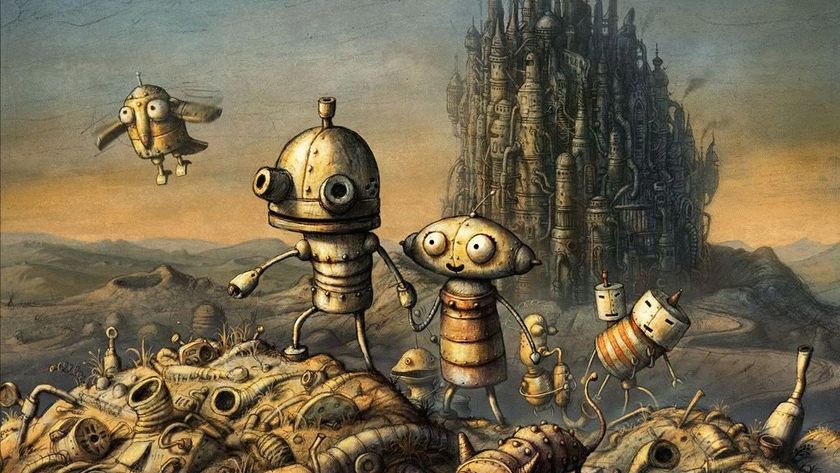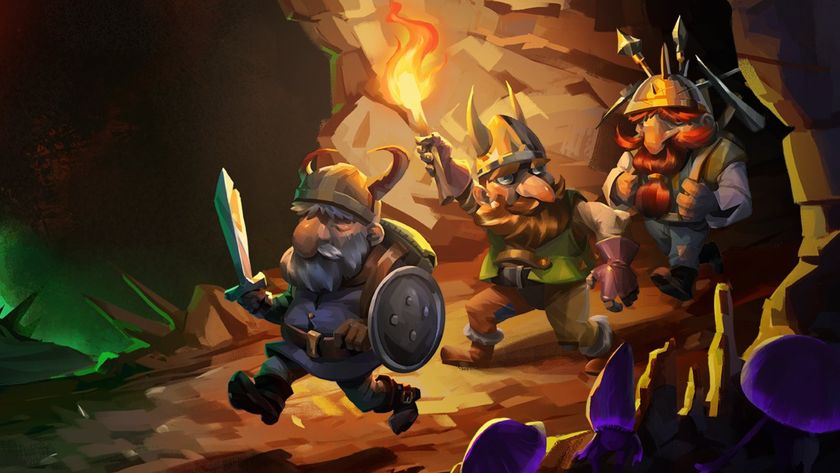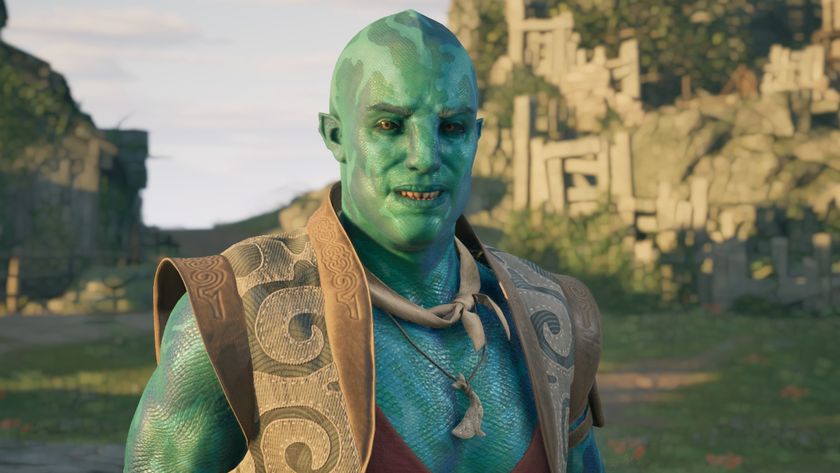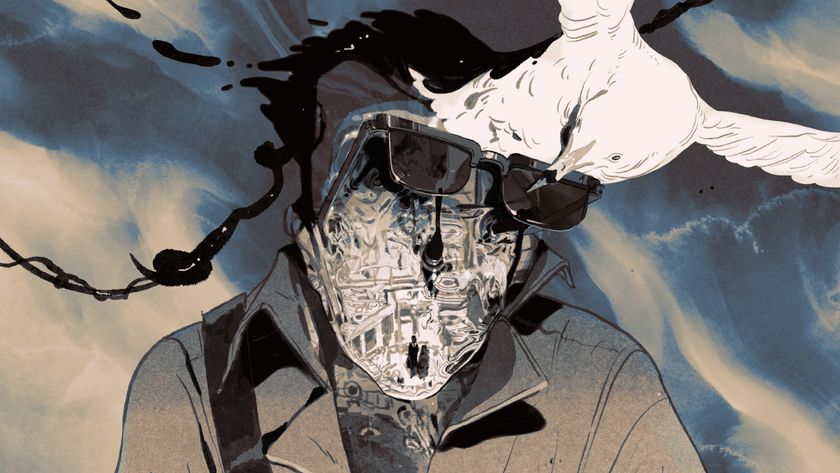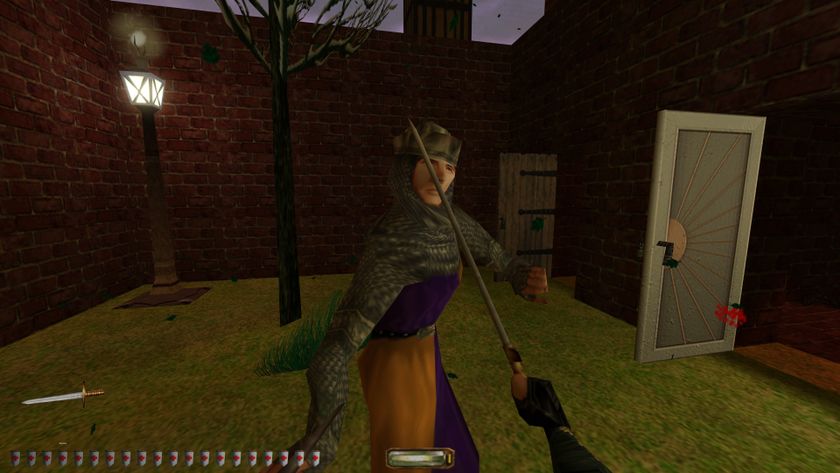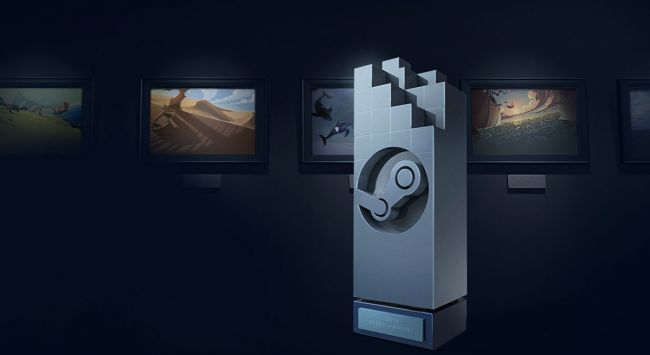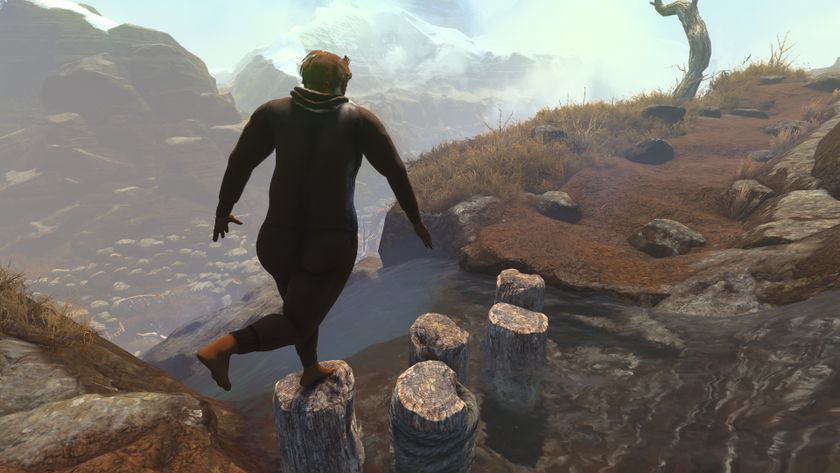Editorial: How to save adventure games
Adventure games suck. Sorry, but it's true.
Play me a story
Ultimately, what set the classics apart from the herd was design and writing – not simply the lines that the characters spoke, but the texture of the world itself, how well the puzzles suited both the characters and the situations, and how it all combined into a unique experience. The Three Trials for instance, pioneered by Monkey Island, is still the standard adventure structure today (three unrelated quests, so that you always have something to be doing if you get stuck on one puzzle). Its sequel's Four Map Pieces structure (same thing, on a larger scale) has been used in almost every BioWare RPG since Baldur's Gate 2. It's so common, it's hard to remember that it was once fresh and exciting.
Tim Schafer, who worked on many classic LucasArts adventures, including the Monkey Islands, Day of the Tentacle, and his own masterpiece, Grim Fandango, offered a fantastic example of how games could bend and warp the rules when promoting his rather tougher adventure, Full Throttle. To demonstrate the difference in puzzle style, he explained how his new character, Ben, a good hearted but tough-as-nails biker, would get through a door using only a sandwich, compared with how Bernard, the geeky hero of Day of the Tentacle, would do the same thing. Bernard, he explained, would disassemble that sandwich into pieces, slide a piece of bread under the door, poke the key out with a cocktail stick and retrieve it the old-school way. Ben on the other hand would just eat the sandwich and kick the door down.
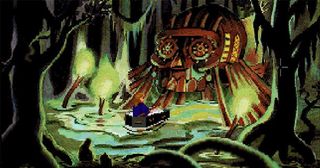
With this more hands-on approach to puzzle solving, complete with a more filmic style and a few action sequences, Full Throttle took the adventure genre and crafted its own experience. It used what worked. It threw out what didn't. Where it needed something new, it added the systems and mechanics to make it happen, instead of trying to force them on an existing framework.
Almost all the classics did the same thing, in their own ways. Day of the Tentacle turned puzzle design into an art, with three playable characters on an adventure that wove in and out of three time periods. Police Quest was entirely designed around following authentic police procedure – which was more fun than it sounds. Indiana Jones and the Fate of Atlantis offered three completely different paths to the ending, depending on whether you wanted to win with your head, with your fists, or by teaming up.
Even LucasArts' first adventure (or at least, first big one - technically Labyrinth got in there first), Maniac Mansion, was almost impossibly advanced for the time. It had three simultaneously playable characters (chosen out of seven, each with their own skills, and yet the game was solvable with any set), a point-and-click parser, and even a few real-time events, such as the villains responding to the sound of the doorbell ringing. Incredible stuff for 1989. Never seriously ripped off to this day.
With such a lineage to build on, why are modern adventures usually so bland in comparison to the classics? The simple answer is that... really... they're not. Go back to even a classic adventure like Fate of Atlantis and if you don't have your rose-tinted glasses on, you're likely to find it very slow-paced and bland compared to modern games and to the movies. When it came out in 1992, however, such games weren't around. Adventures were the only genre that could offer an experience that cinematic, or which had the mechanics to tell an Indy-style story. It was that, or yet another platform game.
The biggest gaming news, reviews and hardware deals
Keep up to date with the most important stories and the best deals, as picked by the PC Gamer team.

Restore, restart, quit
Since those days, our expectations have changed. We expect more of a flow these days, and for our stories to have pace. Your character standing gormlessly on the screen, while you scan a mouse cursor over every pixel in the attempt to find a single nail that can be used to pick a lock, is the equivalent of a roleplaying game expecting you to map a dungeon with a pen and paper. There's a certain old-school charm in that, perhaps, but we all know our time could be better spent having actual fun.
Adventures remain trapped in the past, not because the genre as a whole has to be, but because they've learned to restrict themselves to ancient design styles that were primarily set down due to limitations of the time, not because they were inviolate principles. Where once the great adventures would say “This is the story we want to tell. How do we make it happen?”, the current approach is to take the standard templates for puzzle design and structure, then beat the plot around them until it bends or snaps. Lots of effort goes into making these modern adventures look nice (and usually incredibly long). Very little usually goes into making them special. Illogical puzzles, such as the Runaway series making you weld a key back together with sunlight or load a Gatling gun with lipstick, aren't merely tolerated, but treated as all part of the fun, instead of – let's be honest – the stupid rubbish they most definitely are.
Whose fault is this? Ours. The fans, who let this kind of stuff pass on a regular basis. When a game as objectively bad as Limbo of the Lost can get a B+ grade on one of the most prominent adventure sites, and A Vampyre Story can get away with simply ending halfway through the story, and the bloody Runaway games are given anything other than a slap to the face, there's a problem. We should be demanding better. Instead, we act like battered housewives every time a new one comes along – cooing over a shiny bit of jewellery that shows He Still Cares and our beloved genre still isn't "dead". What happens? Most of the developers still active keep churning out the exact same crap, spending vast amounts of the budget on fancy graphics (ironically, the thing that most adventure gamers will race to tell you isn't actually important in the first place), and exactly tuppence on ambition, vision and design.
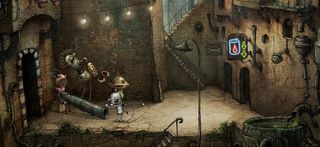
It's a mystery
But what can be done, on a budget, and without breaking the bank? Plenty. Let's look at one specific type of adventure – a murder mystery – and a few classic games with good ideas to steal.
For one of the best, let's go back to 1989, and a Sierra game called The Colonel's Bequest, which had many, many flaws, but an amazing central concept. You had to investigate a series of murders in a creepy plantation, in semi-real time (it advanced as you changed rooms). Whether you were there to see it or not, the plot would advance, to the point that you could 'finish' it by simply wandering around and ignoring the puzzles. The twist was that if you wanted to work out what was going on, you had to solve the mystery. You. Not the main character, amateur sleuth Laura Bow. You personally. If you didn't, you'd crash and burn in the finale, when asked to explain whodunit. See? In one prehistoric game, we have at least five ideas begging to be stolen. A player-solved mystery, which opens up the potential for discussion online as well as simply walkthroughs. The realtime hook, semi-or-otherwise. The observation element. A smallscale, but intricate, setting, rather than the typical 'We have 250 rooms!' non-selling point. And finally, shifting the focus from puzzles to characters (though it does have both), in the tradition of an Agatha Christie, with all the additional backstabbing and scope for red-herrings that they provide.
There. That's five things in one game, just waiting to be stolen.
Not enough? Here are a few ideas that could be added. In Philip Marlowe: Private Eye, you got to raid crime scenes, but had to be careful you didn't take anything that might make the police finger you as the murderer. In The Last Express, you could rewind time if you thought you'd made a mistake, enabling the game to pressure and misdirect you without forcing a complete replay. In Tex Murphy, you got to search rooms in full 3D, including every drawer, under the rugs, and in every nook and cranny. There are plenty of other possibilities, but you get the point. Any one of these ideas would be more interesting than implementing the old newspaper-under-the-door trick yet again. In a world where these things are even possibilities, there's simply no excuse for another sliding block puzzle.
NEXT PAGE: Reinventure

